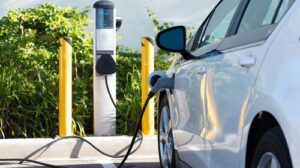
The UK and EU have agreed to extend trade rules on electric vehicles (EVs) until the end of 2026. This agreement facilitates UK-EU tariff-free trade in electric vehicles and prevents 10% tariffs being levied on this trade from January.
It is expected that this will save car manufacturers and consumers up to £4.3 billion in additional costs and provide long-term certainty for the industry and boost electric vehicle sales between the UK and Europe.
Prime Minister Rishi Sunak said: “We have been listening to concerns of the sector throughout this process, and I know this breakthrough will come as a huge relief to the industry.
“The UK Government is delivering a pragmatic solution to keep costs down for businesses and for people at home who want to make the switch to electric vehicles.
“We are also leaving no stone unturned to bolster our domestic battery industry and deliver long term certainty for our thriving automotive sector to help them grow their roots in the UK.”
Business and Trade Secretary Kemi Badenoch said: “This government is determined to ensure the UK remains one of the best places in the world for automotive manufacturing. We listened to the concerns of the sector and worked hard with counterparts in Brussels and across Europe to deliver a solution that works for both sides.”
Mike Hawes, SMMT chief executive, said: “Deferring the rules of origin is a win for motorists, the economy and the environment. Maintaining tariff-free trade in EVs will ensure consumers retain the widest and most affordable choice of models, at a time when we need all drivers to make the switch.
“Governments have listened to the sector and acted to safeguard the competitiveness of the EU and UK automotive industries and give the Anglo-European battery industry the critical time it needs to catch up. The measure will help cut carbon, support growth and jobs, and is the right decision for the decarbonisation of road transport.”









